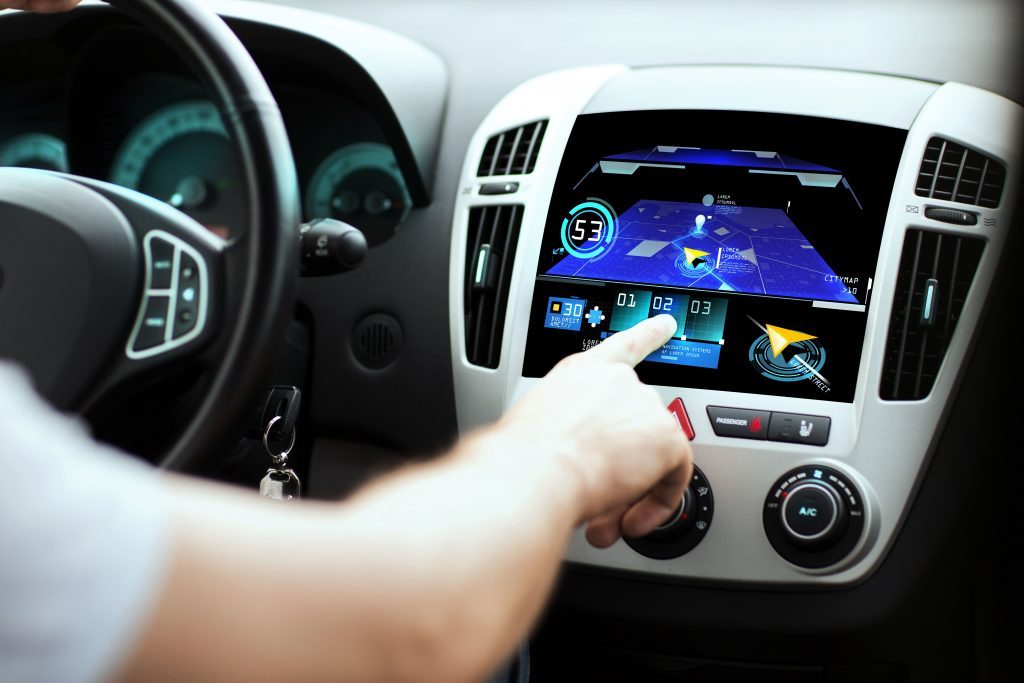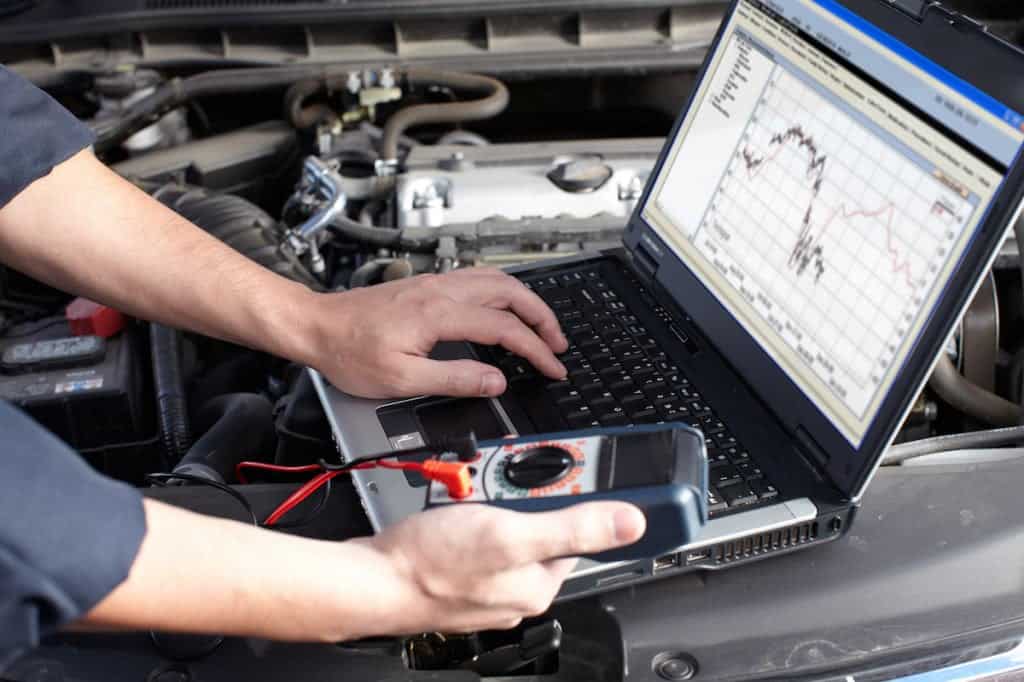The Ultimate PCM Buying Guide


The power control module, or PCM, is the brain of your car. If you’ve ever gotten a low oil warning, or your check engine light or traction control light have come on, your PCM is behind that warning. It monitors more than 100 functions on your car, from your automatic transmission to your O2 sensors to your engine pressure.
PCMs were first used in the late 1970s in performance cars. They were originally designed only to manage the powertrain and gear shifting. They did this by monitoring signals from the vehicle speed sensor (VSS), throttle position sensor (TPS) and wheel speed sensor (WSS).
By using this data, they could shift intelligently, taking into account not only the engine’s RPMs, but also speed, torque, and whether or not the wheels are spinning (if the WSS data is faster than the VSS) or locking up (if the WSS is reporting speeds slower than the VSS).
PCMs were far more efficient than older, mechanical, flywheel-based automatic transmissions, and took over the entire market by the mid-1980s. Unless you’re driving a classic car, your car has a PCM under the hood.
Here’s our complete guide to diagnosing a broken PCM, choosing a replacement, and getting one installed.
What to Look For in a PCM Replacement
Every model of vehicle has different needs. Even different versions of the same model can have different transmission ratios, meaning that it’s extremely important to make sure your PCM replacement is right for your vehicle.
If you’re not sure, you can find your PCM’s OEM replacement part number on the PCM itself, or in your manufacturer’s catalog. For the average person, using the OEM standard replacement is recommended, since it’s guaranteed to work properly with your vehicle and won’t void your warranty.
The exception to this rule is the hardcore auto enthusiast who wants to tweak their car for improved performance. If you know what you’re doing and you want to change your automatic transmission’s gear shift pattern, there are plenty of PCMs out there that will get you more acceleration on the racetrack.
One thing to be aware of is your everyday shady mechanic. Some people claim to be able to reprogram your PCM for the track, at a fraction of the cost of buying a replacement. If someone tries to sell you this service, they’re lying. Auto manufacturers don’t want people changing their PCM settings, because badly-done tweaks could cause crashes and leave them liable for damages.
Factory PCMs can indeed be flashed, but only to restore them to factory settings in the event that they’ve become corrected. Beyond that, if you want to change your vehicle’s gear shift ratio, you’ll need to buy a new PCM.

How to Know if You Need a PCM Replacement
Many people find electric vehicle parts confusing. Brake calipers and tie rods are physical parts. You can see if they’re broken, and easily observe when they’re malfunctioning. How do you know if a circuit board is acting up? We’ve explored common PCM failures before, but let’s do a quick recap.
PCM Error Codes
First off, there are error codes that indicate a faulty PCM. If your state requires vehicle inspections, these may come up during that time. Otherwise, you may discover them after a trip to the mechanic. PCM error codes include:
- P0600 – Serial Communication Link
- P0601 – Internal Control Module Memory Check Sum Error
- P0602 – Control Module Programming Error
- P0603 – Internal Control Module Keep Alive Memory (KAM) Error
- P0604 – Internal Control Module Random Access Memory (RAM) Error
- P0605 – Internal Control Module Read Only Memory (ROM) Error
- P0606 – ECM/PCM Processor
- P0607 – Control Module Performance
- P0608 – Control Module VSS Output ‘A’
- P0609 – Control Module VSS Output ‘B’
- P0610 – Control Module Vehicle Options Error
Check Engine Warnings
In addition to these codes, you may be getting other check engine codes that return after repairs. For example, you may keep getting O2 sensor errors, replacing your O2 sensors, and getting the same errors again days later. If this happens, there’s either something causing your sensors to fail, you’re your PCM is faulty.
Problems With Your TCM
You may have problems with your Transmission Control Module (TCM), which is the part of the PCM that controls – surprise! – your transmission. Depending on the exact nature of the issue, this can be as mild as a sudden drop in gas mileage, or as serious as your call stalling on the road, or failing to start at all.
Shifting Issues
Abrupt or unnecessary shifting is another sign that your PCM is starting to fail. So is engine misfiring, like backfires or frequent stuttering. If any of these things start to happen, it’s a good idea to take your car to a mechanic and have them check to see if your engine is setting off any of the codes we listed above.
Finding the Source of the Problem
Finally, you’ll want to determine why your PCM failed in the first place. PCMs are rated to last far, far longer than any of your car’s sensors, so their failure is usually caused by other issues in your car’s electrical system, such as power surges. If you don’t want to find yourself back in the shop three months later replacing your PCM again, ask your mechanic to find out why it failed to begin with.
Average Costs of a PCM Replacement
According to RepairPal, the average cost of a PCM replacement can come out anywhere between $885 and $966, although dealership prices can be as high as $1,600 in parts and labor.
But why go to a dealer? Would you go to your dealer for an oil change, or tire rotation? Of course not. They charge too much for car maintenance, compared to an independent mechanic. Companies like Solo Auto Electronics can replace your PCM for 50% less than your dealer, and they’re not there to sell you an upgrade or tell you your flux capacitor needs readjustment.
Getting a quote takes just a few minutes. Select your car’s make, model, year and engine type, and Solo will instantly show you the right PCM for your vehicle. If you’re having trouble finding your vehicle, our chat box will connect you to a friendly service representative, or you can give us a call at (888)-848-0144.
—
If your car is running well and you’re not a racing enthusiast, there’s no reason to replace your PCM. On the other hand, PCM problems never get better. They only get worse, and can cause your car to shut down in the middle of driving, which is a major safety issue in addition to being inconvenient. Therefore, if your PCM is failing, it’s a good idea to replace it as soon as possible.
Why wait when your safety is at stake? Get your PCM replacement today!









